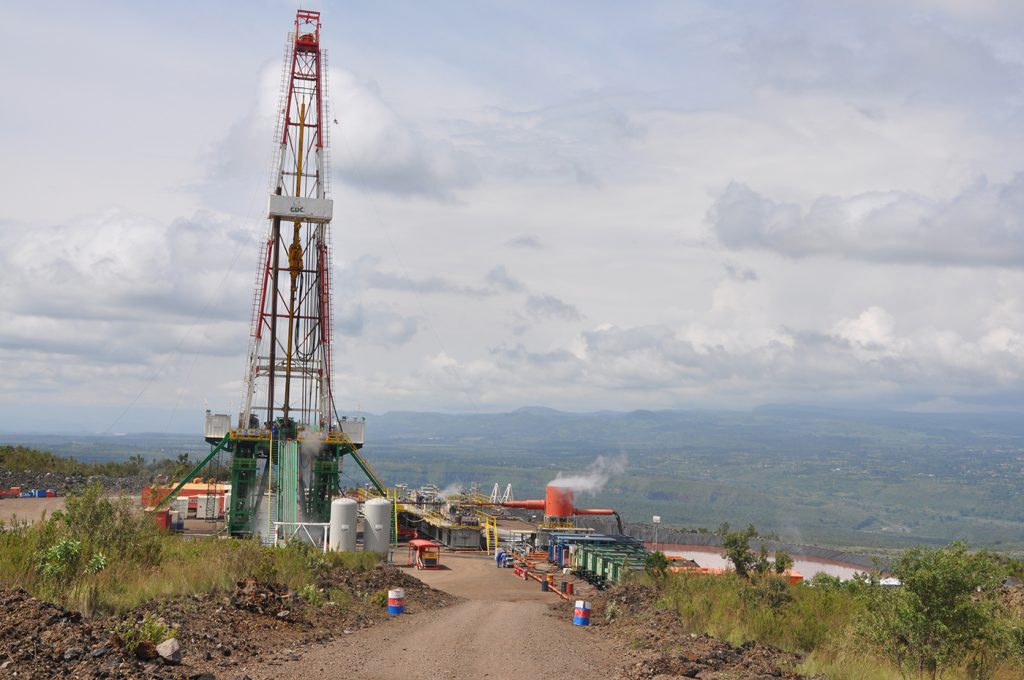Policy shift in Kenya on private geothermal power project development at Menengai

With a new policy shift and possible new investor in KenGen, Kenya is taking a new approach in geothermal development and private investor involvement.
As reported today from Kenya, the country has taken a u-turn on its policy that involves private project partners taking over geothermal projects after the country’s Geothermal Development Company (GDC) has drilled wells. The reasons seem to be the delay in development of three private projects at Menengai.
As the EastAfrican reports, the government will now instead work with state-owned KenGen in the second and third phases of the geothermal development at the Menengai geothermal fields.
The development at Menengai was planned in three stages. Stage one with three private projects of each 35 MW (105 MW in total), a second stage with 60 MW and then a third stage with up to 300 MW of development.
Last month the African Development Bank (AfDB) released an assessment report on the status of the Menengai Geothermal Development power project highlighting the long delay, which now seems to have caused the policy shift by Kenya.
The three developers, Orpower 22 Ltd, Quantum Power East Africa, and Sosian Energy, were to start construction now a few years ago, but so far this has not happened. The reasons are many but mostly “due to delayed fulfilment of the conditions precedent including securing letters of comfort, carrying out feasibility studies on the availability of steam and failing to reach financial closures with financiers in time.” The first of the IPP driven plants was to start operation in March 2018. There are though reasons both with the IPPs and GDC, as the AfDB’s report on the Menengai project said. In 2018, Kenya actually withdrew financial and risk guarantees it offers under the PPP framework, quoting abuse by investors and potential risks to taxpayers.
The government believes that if KenGen had taken over the development, similar to Olkaria’s 280 MW development, the plants would already be operational, according to Energy Cabinet Secretary Charles Keter.
There is talk about an equity investor coming into KenGen to invest in geothermal production. The new investor is said to be taking some equity in projects “and bring in more capital to strengthen KenGen’s balance sheet so that they can have sufficient funds for investments without relying heavily on borrowing. KenGen is using steam like that at Olkaria to get investors in the geothermal power production.
With the proposed agreement, KenGen could give up up to 70% of its equity stake in geothermal projects to strategic investors, retaining a share of 30%.
With the policy shift announced now, clearly the government will not automatically offer financial and risk guarantees making it harder if not impossible for private investors to mobilise financing.
How this will play out will have to be seen, yet it is a dramatic shift that creates new challenges, but also opportunities.
Source: All Africa/ EastAfrican